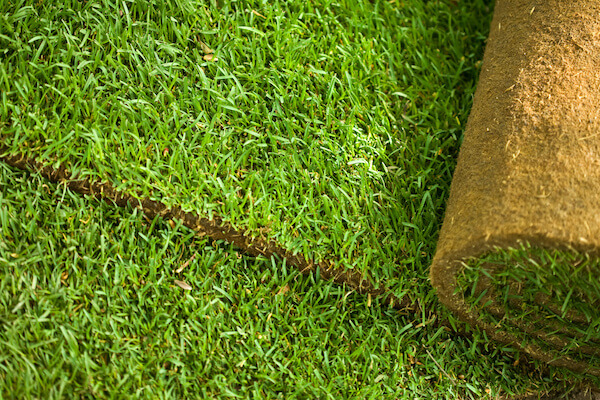
Why Should You Choose Seville for Your Home Lawn?
When you want a lush carpet of green around your Florida home, you can choose from quite a variety of turf grasses well adapted to the warm, humid conditions of our state. One of the most popular is St. Augustine grass. For yards with shade trees or near the coastline, your best cultivar may be the Seville St. Augustine variety. With far more benefits than disadvantages, it’s no wonder homeowners prefer Seville.
Advantages of Seville St. Augustine grass
Here’s why Seville remains popular in residential applications:
Thick, fine, dark green leaves: The finer the leaf and the thicker it grows, the more luxurious the expanse of your lawn. Unlike many of the St. Augustine varieties, the Seville leaves are narrow, creating a more carpet-like spread. The dark green color gives the appearance of robust health.
Low growing: As a dwarf cultivar, Seville likes more of a buzz cut when mowing. Mowing heights should be between two and two and a half inches for optimal health as opposed to the normal three and a half to four inches of other St. Augustines. Even if the weather prevents mowing for a time, your lawn won’t take on a shaggy, overgrown and untidy look.
Shade tolerant: One of the most prized features of Seville is its ability to tolerate more shade than most warm season grasses. Although no sod prospers when the sun is totally occluded all the time, Seville handles like a trooper those zones that only get a few hours of sun each day.
Thrives in high temperatures: Although Seville can flourish in shady areas, it also thrives in the sun and high temperatures. As long as you properly irrigate, Seville will welcome those extreme summer temperatures of the Florida climate.
Easy to grow: Seville is a grass that requires no coaxing or delicate handling to grow. Whether installed as sod or propagated by plugs, in good, well-drained soil, Seville roots quickly and settles in without difficulty.
Fairly salt tolerant: Because St. Augustine grass grows naturally along subtropical coastlines in North America, Africa and Australia, it can take salt spray more readily than many other varieties of turfgrass. This makes it great for homes near the shoreline.
Good fall color retention: For northern and mid-Florida lawns, Seville retains its dark color well into the fall. In south Florida, it tends to grow all year long, so it seldom goes into dormancy in that weather zone.
Good spring green-up: Come springtime, Seville grass will green up quickly, especially with an early or mid-April nitrogen boost, depending on your zone.
Disadvantages
Unfortunately, no one sod has it all, and Seville does have some inherent weaknesses if not properly cultivated and maintained. However, for the most part, if you consult with sod growers or other experts in turfgrass, you can learn all the best practices for Seville that will keep it healthy and happy in your yard. Here are the few downsides:
Low traffic tolerance: Not cultivated to be a sports turf, Seville can’t handle heavy wear as well as other types. Compacted ground and daily foot traffic can challenge your lawn. On the bright side, for those areas that will see a lot of action, you can always landscape in pavers or other ground coverings, especially under children’s play areas.
Prone to thatch: Dwarf cultivars tend to be prone to thatch, and Seville is no different. But thatch comes from over fertilization and watering, so it’s quite avoidable when you follow good maintenance protocols.
Cinch bugs like it: The dreaded cinch bugs that love to ruin lawns particularly enjoy weakened Seville turf. As with all sods, though, proper care results in a hearty and vigorous lawn able to withstand pests and weeds.
Cold-sensitive: As a warm season variety, Seville grass will go brown and dormant if winter brings a long streak of cold weather. Once the temperatures rise again, it will green up well.
Not drought tolerant: As a coastal native, St. Augustinegrass is adapted to plenty of moisture. It should be irrigated as needed during dry periods, but not overwatered, to remain healthy.
Duda Sod happily provides products, services, and information to homeowners wishing to grow great lawns. Feel free to contact us today!